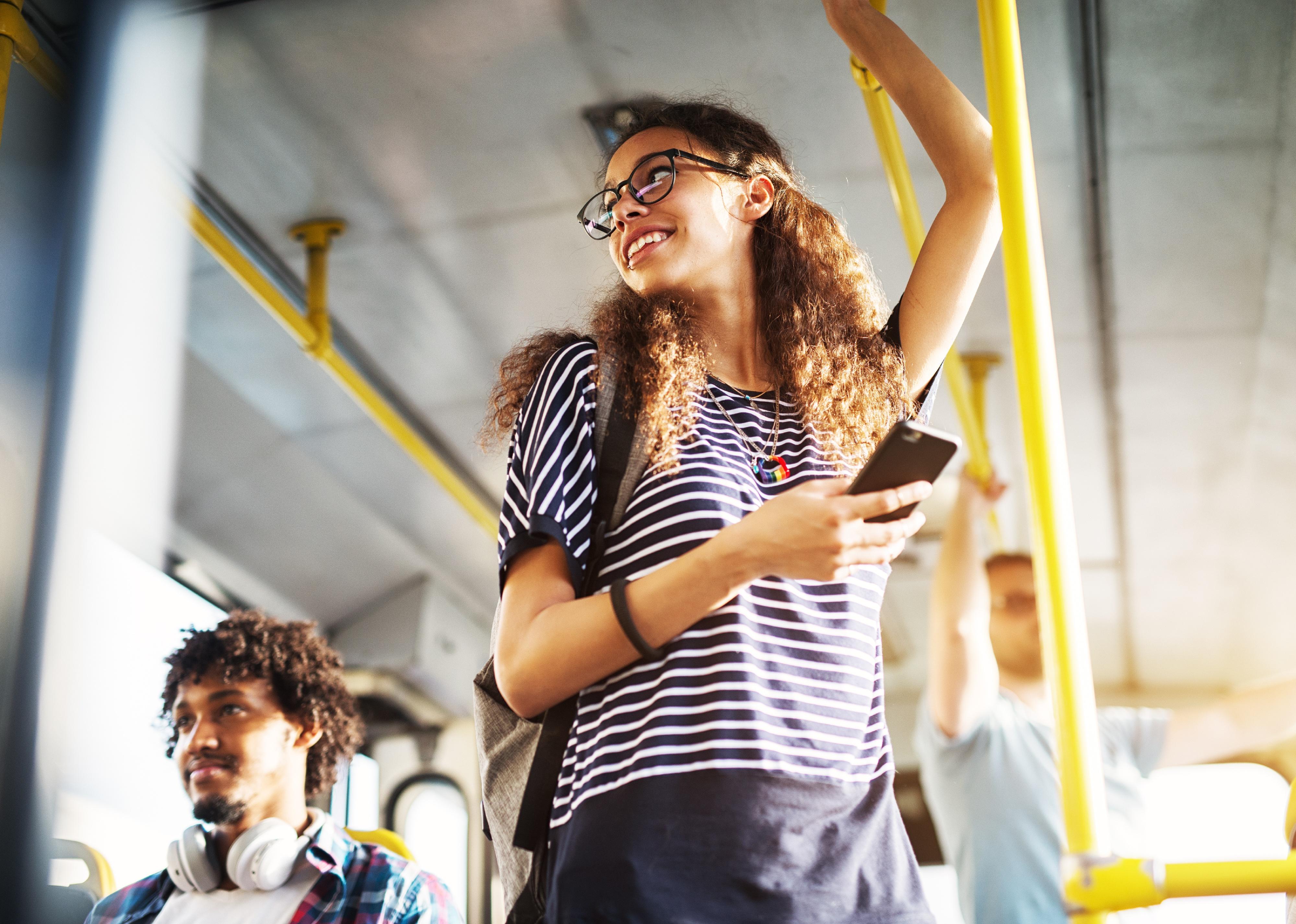
Best US cities for Gen Z—and what it's like to live there during COVID-19
This story originally appeared on Sublet.com and was produced and distributed in partnership with Stacker Studio.
Best US cities for Gen Z—and what it's like to live there during COVID-19
COVID-19 has spared no generation, but has put a unique burden on Gen-Zers—the roughly 67 million Americans born between 1997 and 2012—who are just entering the workforce, starting college, or graduating high school amid an international pandemic.
Despite the coronavirus grinding everyday life as we know it to a halt, the Gen Z demographic is still charting its courses as these young adults choose cities to start building their lives, look for education and job opportunities, and enter into adulthood. To that end, certain American cities do better than others at courting budding entrepreneurs, advocates, artists, and experts in tech. Gen Z will become the main drivers of the economy, says Nestpick founder Omer Kucukdere. It’s fair to say the cities to which Gen Z flock will benefit from the influx of new residents, adds Kucukdere, but Nestpick wanted to discover which U.S. cities have the most to offer to Gen Z.
Sublet.com, owned by Nestpick Inc., compiled a listing of the best 10 U.S. cities for Gen Zers primarily based on Nestpick’s 2019 Generation Z City Index, which focuses on a collection of cities finest suited for this demographic’s various number of existence and work values.
The original study ranked 110 global cities based on 22 indicators spanning four major categories: digital, principles, leisure, and business. For each city, a weighted average was applied to create an overall city score indexed from 0 to 100. To adjust for lifestyles during COVID-19, Sublet.com updated the affordability indicator to use mid-2020 data, excluded two indicators from the original study (concerts and co-working spaces), and provided information on the status of COVID-19 locally and how the cities and residents have adapted. Sublet also included recent COVID-19 statistics for each city from the Jan. 3 COVID-19 Community Profile Report released by the White House COVID-19 Task Force.
Gen Zers are hooked on technology, having been exposed to smartphones, laptops, and the internet as infants and young children. They’re characterized as valuing cultural diversity, making meaningful contributions, and tackling issues with passion. This generation openly shares on social media, builds virtual relationships and communities, and typically spends hours each day digitally connected.
Keep reading to see which U.S. cities are best for Gen Z—and what it’s like to live there during COVID-19.
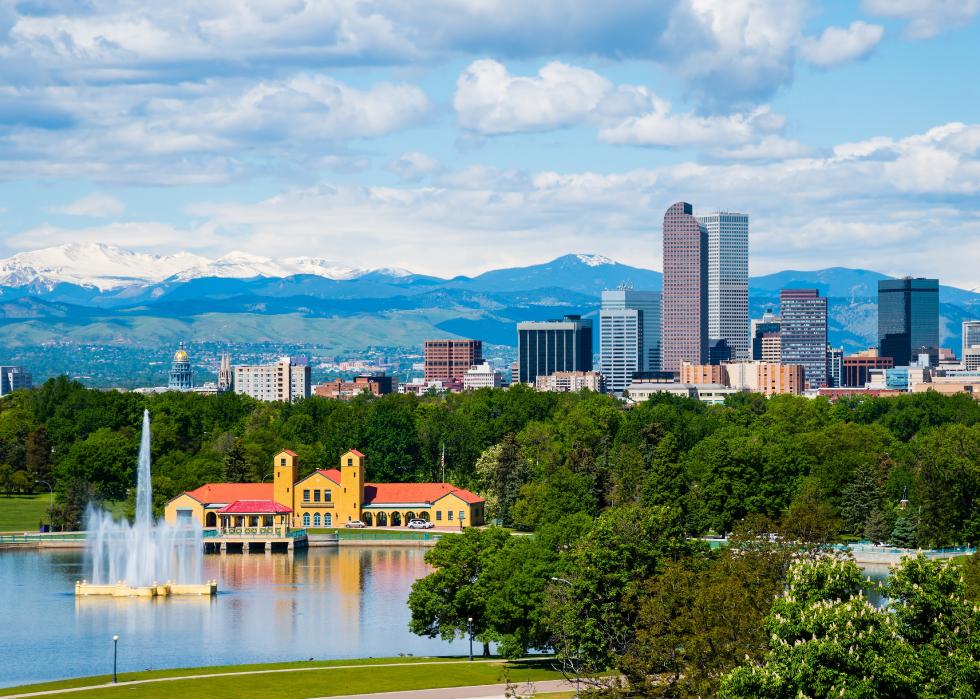
#10. Denver
- Total score: 58.06
- Top Gen-Z categories: Government digitalization (94.13), Access to health care (89.58), Right to protest (85.66), LGBTQ+ equality (77.78), Internationalism (40.91)
- COVID-19 statistics (for the Denver-Aurora-Lakewood metro area, Dec. 27 to Jan. 2):
--- 7,533 new cases (254 per 100,000 people, -7.0% change from previous week)
--- 122 new deaths (4.1 per 100K, +3.0% change from previous week)
--- Test positivity rate: 7.4%
Young people have flocked to this Colorado city for its high-tech jobs, lively bar scene, a downtown that’s good for walking to restaurants and shops, and easy access to skiing and other mountain sports. COVID-19 restrictions have limited indoor dining, and outdoor dining is not exactly optimal in a Rocky Mountain winter. Ski resorts can still operate, but non-essential access to the indoors is prohibited.
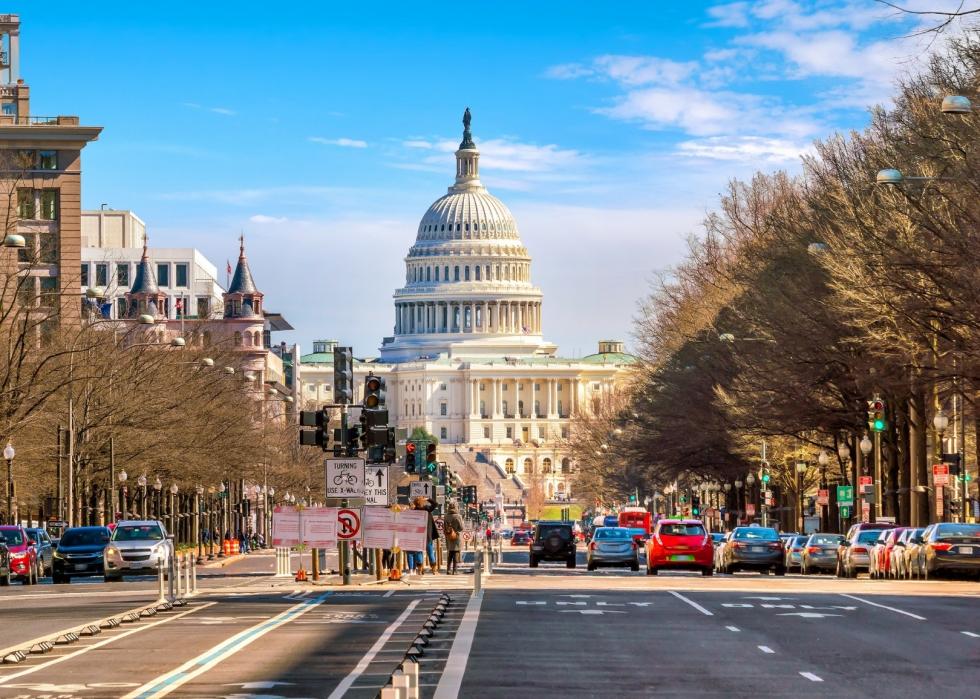
#9. Washington DC
- Total score: 59.31
- Top Gen-Z categories: Government digitalization (94.13), Access to health care (81.19), Right to protest (85.66), LGBTQ+ equality (75.39), Internationalism (37.92)
- COVID-19 statistics (for the Washington-Arlington-Alexandria metro area, Dec. 27 to Jan. 2):
--- 18,794 new cases (299 per 100,000 people, +7.0% change from previous week)
--- 185 new deaths (2.9 per 100K, +22.0% change from previous week)
--- Test positivity rate: 12.3%
As COVID-19 has hit the nation’s capital, its abundance of political, lobbying, and government jobs that would bring Gen Z to Capitol Hill, Foggy Bottom, or Georgetown are largely being done remotely. Protests and demonstrations, a mainstay for D.C. idealists, pack less of a punch with social distancing, and many have been put on pause altogether. The presidential inauguration, a highlight for political junkies, will be trimmed back to only about 1,000 invited attendees this year from the typical 200,000, and the parade down Pennsylvania Avenue that typically attracts millions of visitors will likely be virtual like the summer’s Democratic convention.
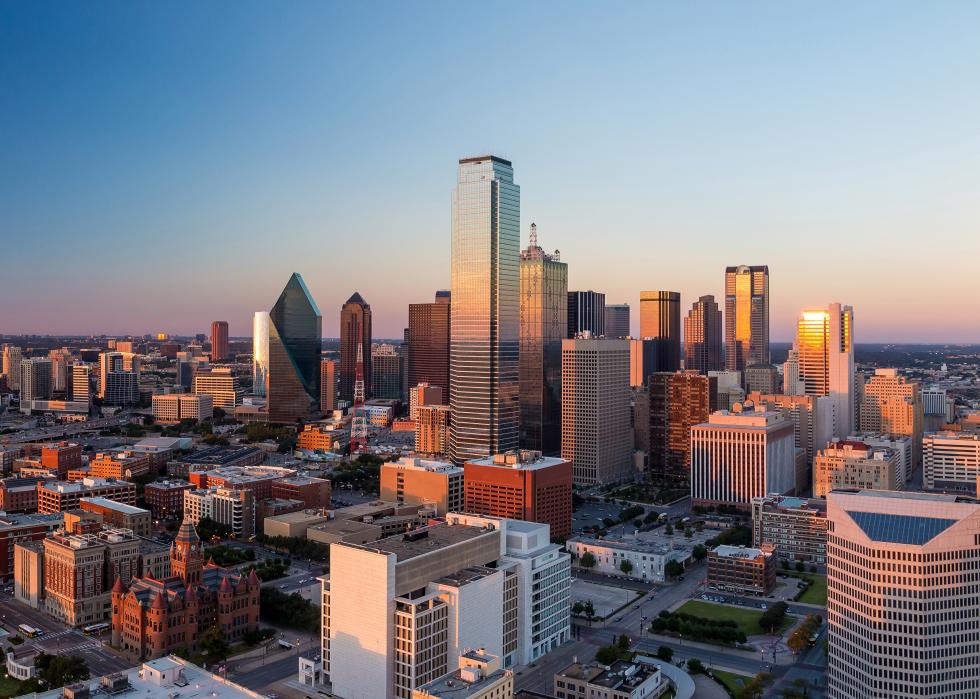
#8. Dallas
- Total score: 62.20
- Top Gen-Z categories: Government digitalization (94.13), Access to health care (82.33), Right to protest (85.66), LGBTQ+ equality (56.10), Internationalism (51.54)
- COVID-19 statistics (for the Dallas-Fort Worth-Arlington metro area, Dec. 27 to Jan. 2):
--- 42,842 new cases (566 per 100,000 people, +60.0% change from previous week)
--- 333 new deaths (4.4 per 100K, +9.0% change from previous week)
--- Test positivity rate: 23.0%
Dallas has been full of promise for Gen Zers, who value digital connectivity, casual work environments, affordability, and recreational options. But the friendly, open atmosphere has been dampened by COVID-19 cases and hospitalizations hitting record highs. The city’s avid sports fans have been sidelined as the Dallas Cowboys have played to deserted stadiums, with a few cardboard cutout characters in the end zones, and the Mavericks are playing basketball in empty or near-empty arenas.
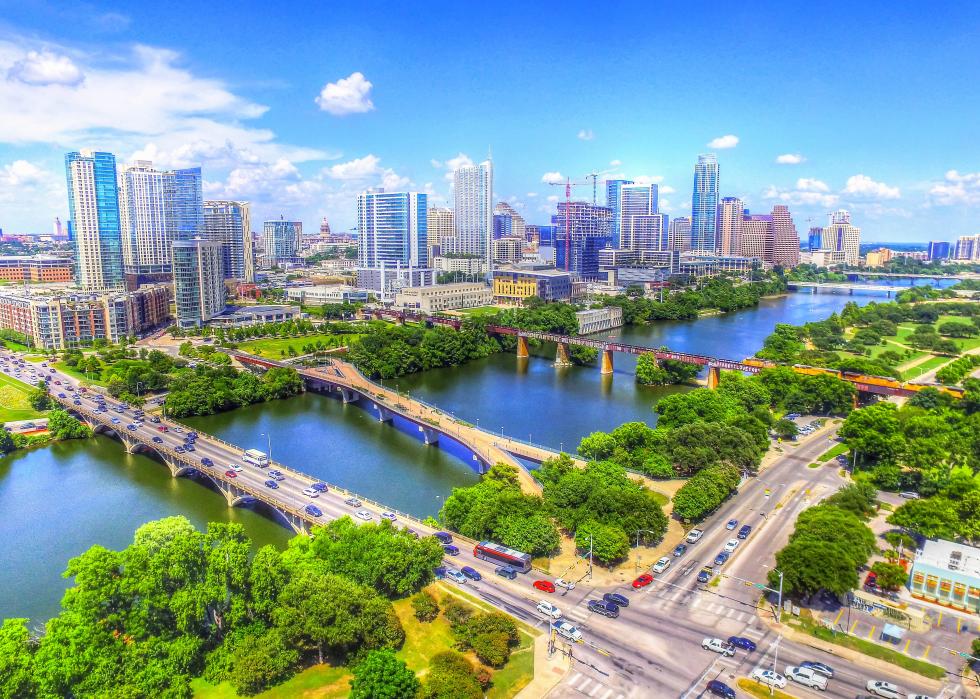
#7. Austin, Texas
- Total score: 64.23
- Top Gen-Z categories: Government digitalization (94.13), Access to health care (82.45), Right to protest (85.66), LGBTQ+ equality (47.64), Internationalism (44.26)
- COVID-19 statistics (for the Austin-Round Rock-Georgetown metro area, Dec. 27 to Jan. 2):
--- 7,623 new cases (342 per 100,000 people, +43.0% change from previous week)
--- 47 new deaths (2.1 per 100K, +68.0% change from previous week)
--- Test positivity rate: 14.3%
The slogan “Keep Austin Weird” has aptly captured the quirky, progressive character of the Texas city, a unique haven for artists, musicians, indie businesses, vegan chefs, and tech innovators. But the joyful din of the city’s music festivals, performance art, and honky-tonk bars has been dimmed since COVID arrived. The area's iconic vegetarian Mother’s Cafe shut down after 40 years in business, as did Threadgill's, which first opened in 1933 as the city’s first licensed beer joint after Prohibition.
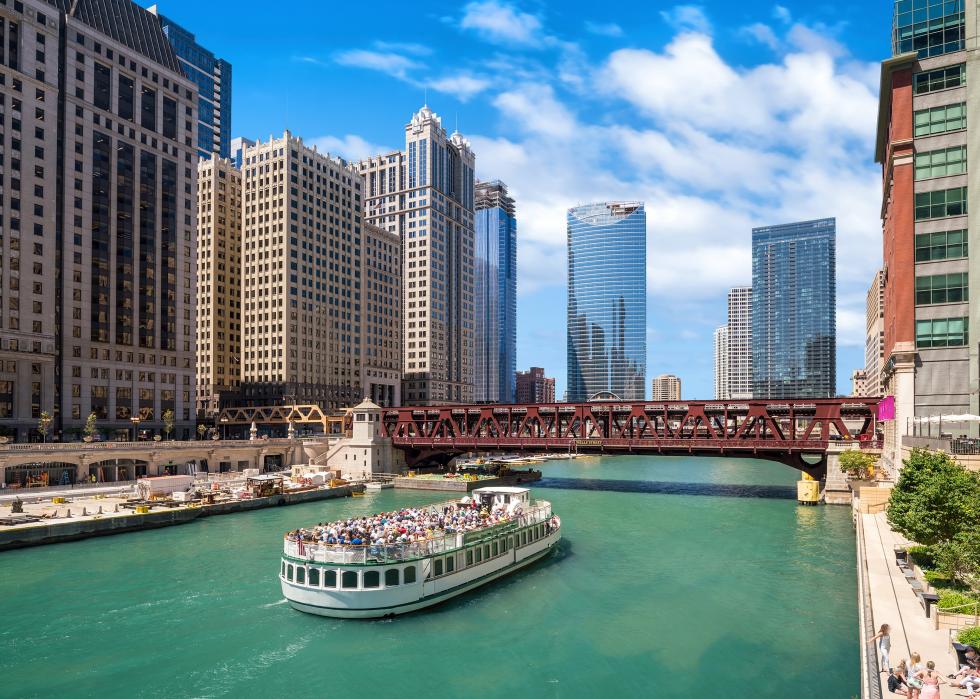
#6. Chicago
- Total score: 64.82
- Top Gen-Z categories: Government digitalization (94.13), Access to health care (86.81), Right to protest (85.66), LGBTQ+ equality (79.61), Internationalism (47.52)
- COVID-19 statistics (for the Chicago-Naperville-Elgin metro area, Dec. 27 to Jan. 2):
--- 28,185 new cases (298 per 100,000 people, +1.0% change from previous week)
--- 568 new deaths (6 per 100K, -4.0% change from previous week)
--- Test positivity rate: 12.2%
Chicago has emerged as a magnet for young innovators creating startups in the city’s university campus incubators and luring venture capital away from the West Coast to the Windy City. But creative collaboration has taken a hit. Visitors from many other U.S. states have to quarantine for 10 days, city residents are advised to stay home, and universities like Northwestern, the University of Chicago, and the University of Illinois at Chicago have deployed a mix of virtual classes, frequent testing, housing and dorm restrictions, and limits on access to labs and libraries.
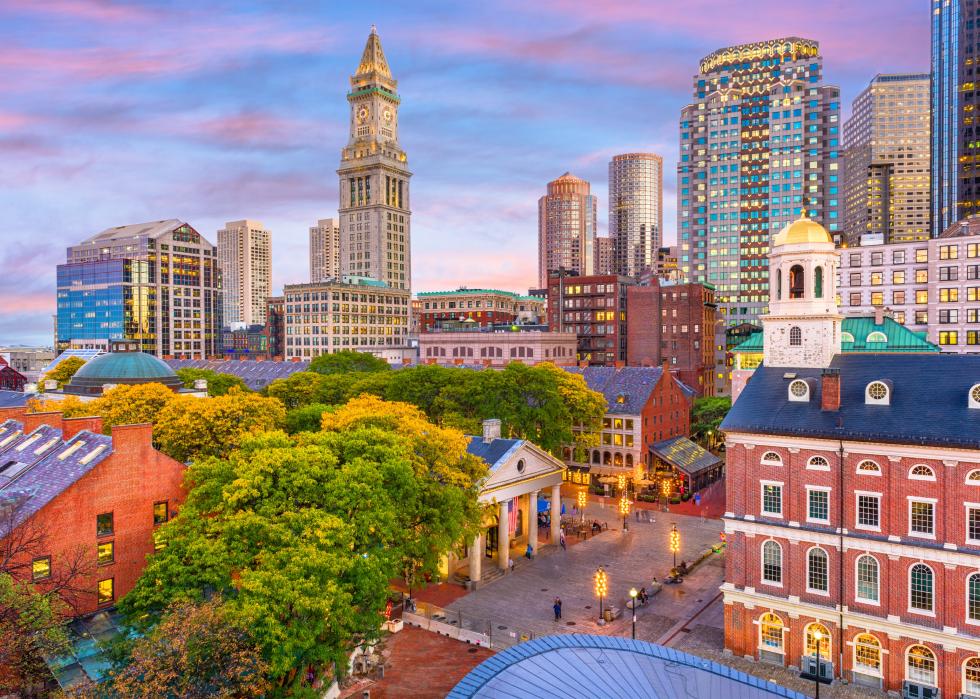
#5. Boston
- Total score: 69.32
- Top Gen-Z categories: Government digitalization (94.13), Access to health care (92.75), Right to protest (85.66), LGBTQ+ equality (57.93), Internationalism (54.74)
- COVID-19 statistics (for the Boston-Cambridge-Newton metro area, Dec. 27 to Jan. 2):
--- 22,111 new cases (454 per 100,000 people, +12.0% change from previous week)
--- 289 new deaths (5.9 per 100K, +33.0% change from previous week)
--- Test positivity rate: 8.6%
Boston is a city brimming with young people: Each fall, well over 100,000 students typically arrive to attend one of its 29 colleges and universities and embrace the nightlife, coffee shops, high-tech sophistication, and generally liberal attitudes. In the 2020–21 school year, however, schools cut in-person fall semesters short and Boston University delayed the start of its spring 2021 semester, canceled spring break in March, and vowed to suspend students attending large on- or off-campus gatherings. Health clubs and theaters are closed (as of the beginning of January), bar seating is off-limits, indoor live entertainment is banned, and restaurant customers are limited to 90-minute meals and a 9:30 p.m. curfew.
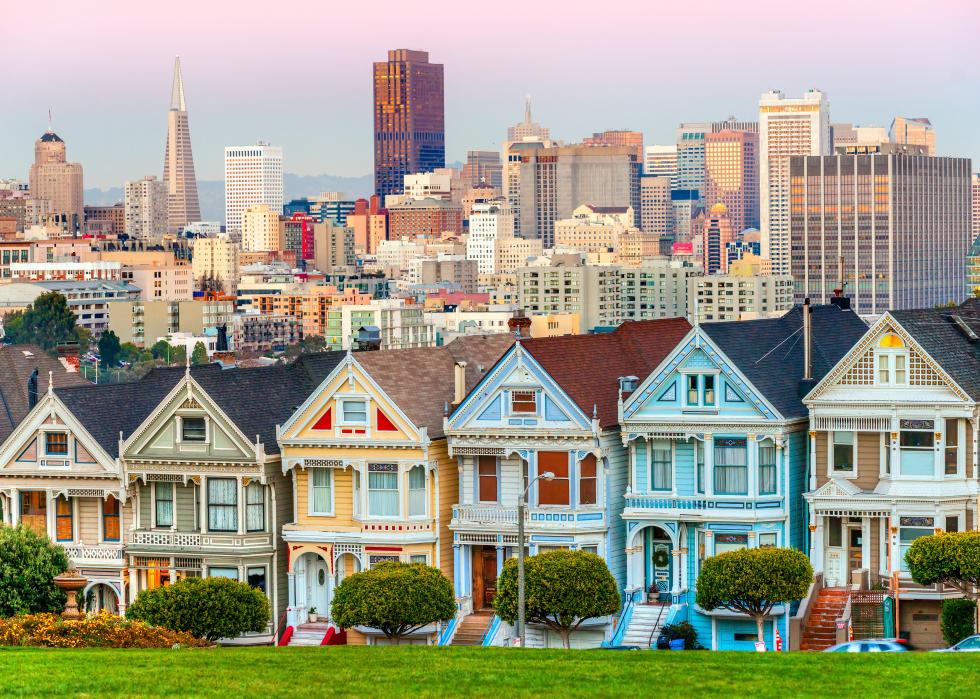
#4. San Francisco
- Total score: 74.59
- Top Gen-Z categories: Government digitalization (94.13), Access to health care (89.97), Right to protest (85.66), LGBTQ+ equality (85.14), Internationalism (63.55)
- COVID-19 statistics (for the San Francisco-Oakland-Berkeley metro area, Dec. 27 to Jan. 2):
--- 13,646 new cases (288 per 100,000 people, -6.0% change from previous week)
--- 90 new deaths (1.9 per 100K, +8.0% change from previous week)
--- Test positivity rate: 7.6%
San Francisco is a tech industry mecca, attracting creative start-up designers, engineers, and venture-capital investors. The restrictions imposed to limit the coronavirus spread—the city is under stay-home orders and anyone arriving from outside the Bay Area must quarantine 10 days—have brought in-person meet-ups, networking, and brainstorming sessions to a screeching halt. But being innovative has motivated many young, tech-savvy residents to collaborate and build supportive internet connections, sharing ideas and expertise to weather the COVID-19 storm.
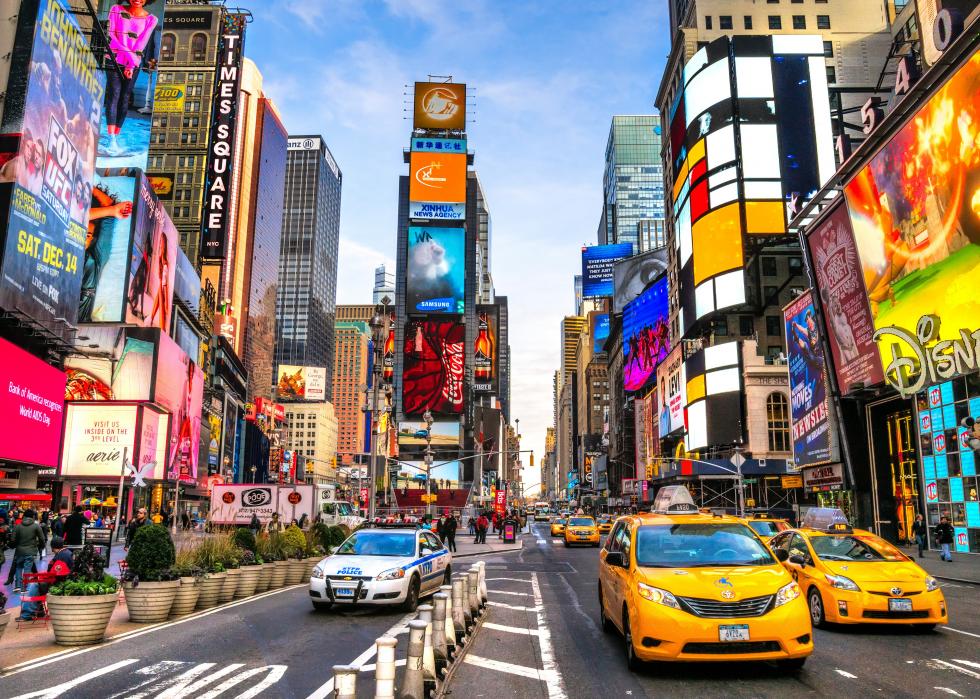
#3. New York, New York
- Total score: 78.21
- Top Gen-Z categories: Government digitalization (94.13), Access to health care (89.26), Right to protest (85.66), LGBTQ+ equality (88.61), Internationalism (65.08)
- COVID-19 statistics (for the New York-Newark-Jersey City metro area, Dec. 27 to Jan. 2):
--- 76,737 new cases (399 per 100,000 people, +9.0% change from previous week)
--- 872 new deaths (4.5 per 100K, +19.0% change from previous week)
--- Test positivity rate: 10.3%
New York has always had something for everyone, Gen Zers included. But the city was one of the earliest COVID-19 hotspots in the nation and imposed strict protocols for masks and social distancing that tamed the spread compared with much of the rest of the country. Broadway, which supports some 97,000 jobs, is expected to be dark at least until summer 2021, and the Metropolitan Opera and New York Philharmonic will be silenced for at least as long.
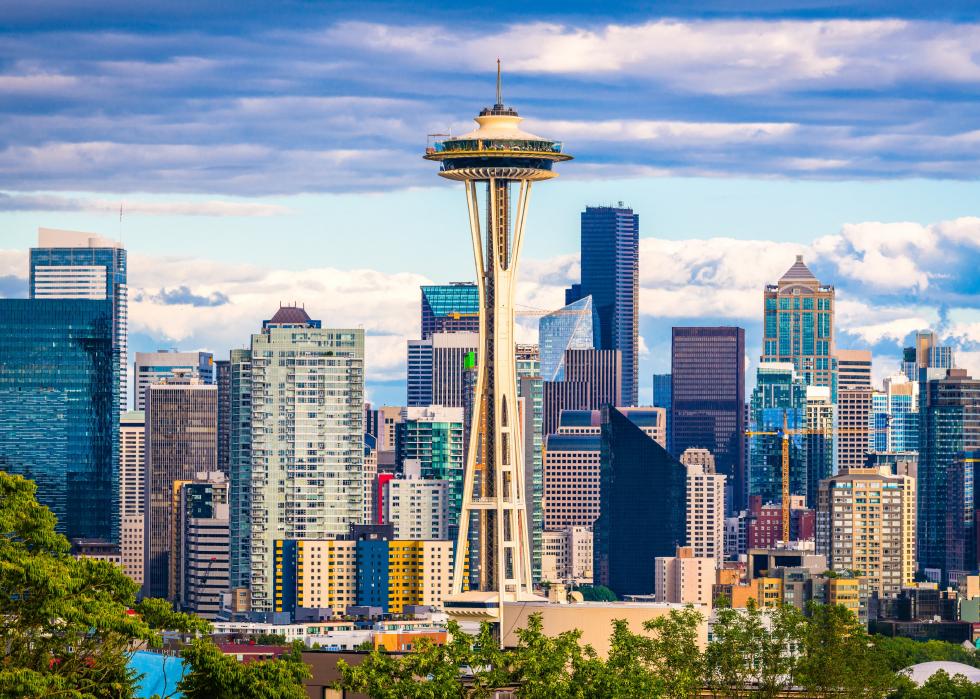
#2. Seattle
- Total score: 81.99
- Top Gen-Z categories: Government digitalization (94.13), Access to health care (91.77), Right to protest (85.66), LGBTQ+ equality (77.55), Internationalism (43.71)
- COVID-19 statistics (for the Seattle-Tacoma-Bellevue metro area, Dec. 27 to Jan. 2):
--- 4,063 new cases (102 per 100,000 people, -33.0% change from previous week)
--- 150 new deaths (3.8 per 100K, +285.0% change from previous week)
--- Test positivity rate: 9.1%
Seattle has long attracted young adults to the city’s livability, social entrepreneurship, digitalization, advocacy, environmental activism, music scene, and coffee culture. But Washington state has been at the center of the COVID-19 battle from the very beginning, after a local man was the nation’s first confirmed case in January 2020. State officials recommend quarantine for anyone who has traveled, there’s a statewide mask mandate, and the restaurant industry has shuttered—with many businesses closing permanently.
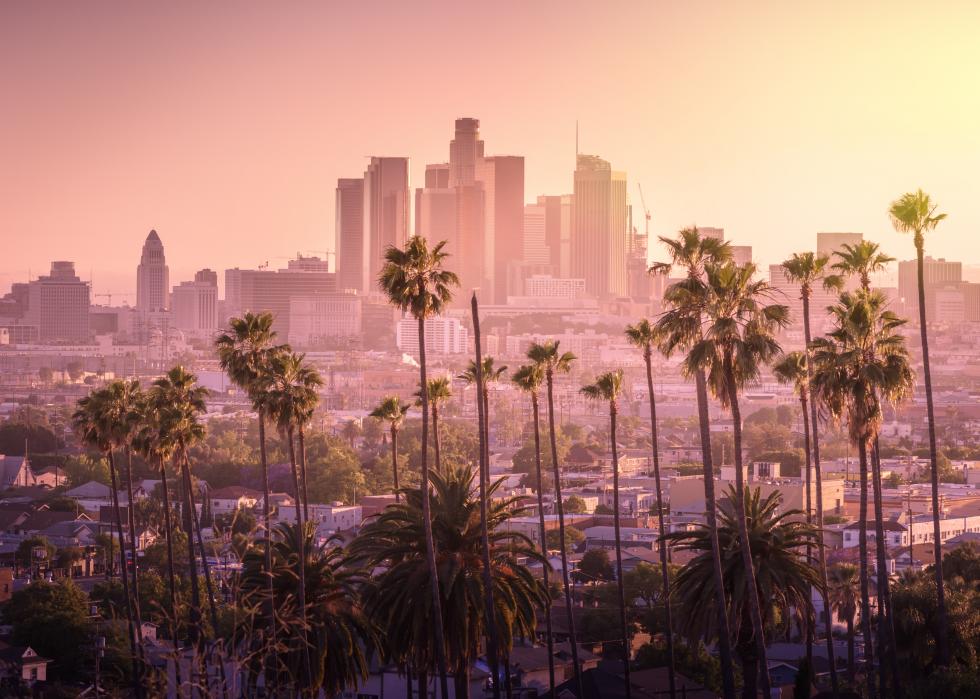
#1. Los Angeles
- Total score: 100.00
- Top Gen-Z categories: Government digitalization (94.13), Access to health care (89.82), Right to protest (85.66), LGBTQ+ equality (81.89), Internationalism (66.49)
- COVID-19 statistics (for the Los Angeles-Long Beach-Anaheim metro area, Dec. 27 to Jan. 2):
--- 120,620 new cases (913 per 100,000 people, +1.0% change from previous week)
--- 1,303 new deaths (9.9 per 100K, +85.0% change from previous week)
--- Test positivity rate: 29.7%
Sunny weather and the dream of a career in Hollywood have always drawn young people to Los Angeles. The city has been caught up in a frightening COVID surge, however, triggering the highest threat level of extreme risk, and residents are under orders to stay home. Movie production suffered, and of the few that have resumed production, stringent protocols have added millions of dollars to costs, and vigilant testing has caused major delays. The latest relief measure in Congress had a five-year film and television tax incentive to boost the industry by allowing producers to expense certain costs rather than write them off as depreciation.



